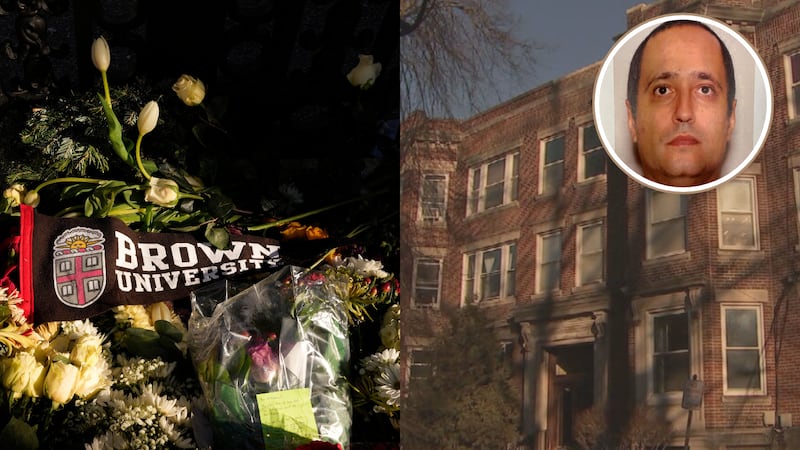DANVERS, Mass. — In the wake of several incidents of hate speech at local schools, community leaders are working to create a safer, more inclusive environment for kids.
Earlier this month, hundreds of students walked out of class at both of Quincy’s public high schools as well as Braintree High School three days later in protest of separate incidents of racist videos shared on social media.
PREVIOUS: Quincy students walk out in wake of fight over racist video
The walkouts followed reports of hazing among Danvers High School hockey players, including racial slurs and homophobic behavior.
Danika Manso-Brown, an education director for the Anti-Defamation League (ADL) New England, told Boston 25 News by Zoom Tuesday, while there have been several headlines about bigotry in schools, the issue is nothing new, perhaps only amplified by more access to information and social media.
“The reality is, we can trace racist and other harmful incidents and language back to the beginning of our country’s history,” Manso-Brown said. “Schools are a microcosm of the greater society. So, we know when we’re seeing culture problems in schools, there are culture problems that exist more broadly in our society.”
Manso-Brown and Phil Fogelman, who is also an ADL education director, work closely with students to increase their awareness of prejudice and discrimination so they can mobilize to fight bigotry.
“ADL sponsors a peer-training program for middle and high school students in which we train a core group of students who represent their school’s demographic to increase their awareness of bias-related issues, how to respond to them when they occur, how to support those who are targeted,” Fogelman said. “And those students then lead activities and discussions for other students at their respective schools to do the same. And I think what we’re seeing now is…young people have the power to make a huge difference. And when they’re empowered with the knowledge and the tools to do that, they will rise to the occasion.”
>>>MORE: Calls for superintendent to resign after allegations of racist, homophobic behavior by hockey team
ADL also proactively works with school leaders to design curriculum that fosters inclusivity.
“We need to be responsive to the incidents,” Manso-Brown said. “But we also need to address some of the issues that exist, not just in interpersonal interactions, but also in things like curriculum, policies, practices that work to reinforce some of these systems of oppression that are manifesting in our schools and communities.”
At Groton-Dunstable Regional High School, administrators notified families of racist graffiti in a school bathroom last month.
Raquel Majeski, chair of the Town of Groton’s Diversity Task Force, said she isn’t surprised by the incident but believes it is an unfortunate opportunity to educate those who are perpetrating hate.
“It’s hurtful, and it’s a moment to pause, ponder and educate,” said Majeski, who is also Assistant Head for Equity and Community Life at Lawrence Academy in Groton. “I think our students are hurting. I think that’s nothing new. I think there’s confusion, that there’s a need for more education, and there’s a need for more support when it comes to dialogue across differences.”
The task force was formed in part due to racist, homophobic and anti-Semitic graffiti found around town last year. The nine-member task force acts as an advisory committee to Groton’s select board, informing them and making recommendations on issues of diversity and ways to target systemic racism.
The task force recommended the select board change the controversial name of a local road, Redskin Trail, as many in the community said the name is offensive to Native Americans. The select board recently voted to approve the name change.
James Moore, a member of the Diversity Task Force and a longtime Worcester educator, said the hateful language at school is damaging to everyone but especially kids who are underrepresented.
“I can remember many times when I was a victim of racist language. And that stays with me and will stay with me all my life,” Moore said. “But I also remember people who used racist language who have turned around and started to understand why that was wrong.”
As such, Moore has hope that by getting kids to communicate with one another change will come.
“I’m an optimist,” Moore said. “Get people talking, have people understand each other on both sides.”
Fogelman and Manso-Brown agreed they have seen real progress in recent years – strides made across society in tackling racial injustice – and kids largely want to be part of that movement.
“I’ve been at ADL for over 20 years,” Fogelman said. “And I’ve seen tremendous change in the way that schools are operating and supporting young people and their efforts to make a difference.”
©2021 Cox Media Group





